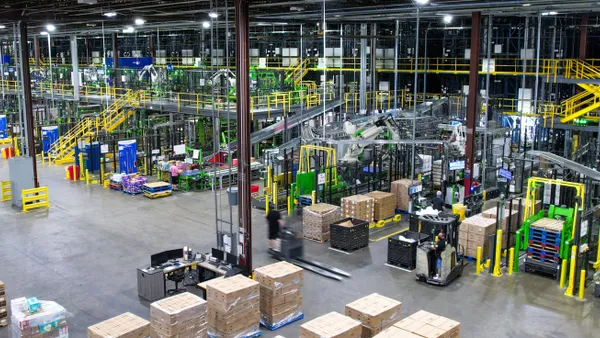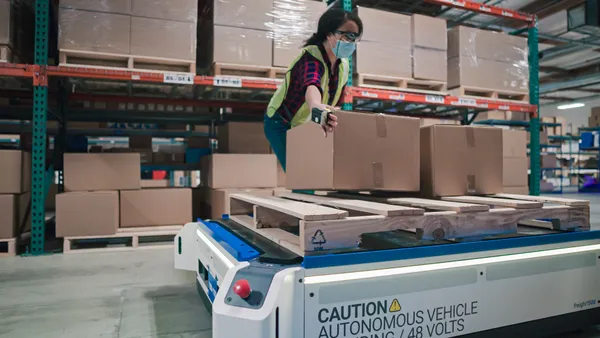Dive Brief:
- Sustainability initiatives are driving revenue growth and cost savings for a majority of businesses, according to the Responsible Business Trends Report 2018 published by the Ethical Corporation.
- The number of respondents saying sustainability drives revenue has been steadily increasing. In 2015, 49% of survey respondents said it drives revenue, compared to 56% in the 2018 report.
- Assessing the impact of sustainability goals, however, remains a challenge. Fewer than half of respondents said they "feel confident" they're accurately measuring impact. In addition, only 30% said they're measuring the return on investment (ROI) of sustainability programs.
Dive Insight:
Over time, companies are realizing the value of sustainability goals — they're not only good for the planet, but often they're good for the bottom line.
Realizing the benefits, numerous businesses, including REI, Ikea and Cargill, have set a high bar for sustainability standards, both within the four walls of their companies, as well as throughout their supply chain, from raw material supplies to transportation.
Across the board, data from Ethical Corporation's report shows a clear increase in managers recognizing sustainability as a revenue driver.
Measuring the impact of these goals, however, isn't always as straightforward as crunching the numbers. Without hard data, it can be difficult for supply chain managers to present their findings to other departments or the C-suite.
It is "crucial that practitioners are able to showcase its impact on the business bottom line," Ethical Corporation stated in its report.
Another solution, although a longer term one, is a change in mindset from the top down. With the help of leadership, companies could begin to reevaluate how they measure the return on various initiatives. As Supply Chain Dive's Rich Weissman put it, the next metric could be assessing a return on "integrity."














